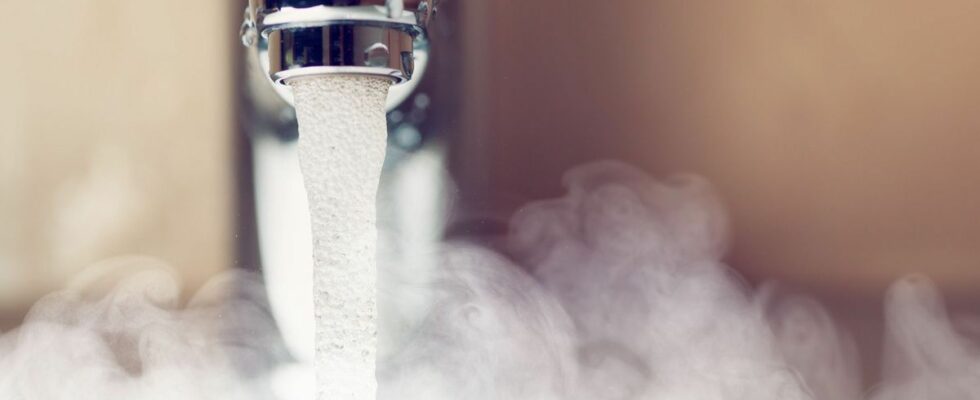Published on
Updated
Reading 2 min.
A highly persistent chemical, trifluoroacetic acid (TFA), has been detected in a large sample of European drinking water, according to associations calling for strict standards on this product resulting from the degradation of “eternal pollutants” in certain pesticides and refrigerant gases.
Following a study in May on the widespread contamination of rivers and lakes by TFA, the European Pesticide Action Network (PAN Europe) and its members, including Générations futures in France, have this time had drinking water samples from 11 EU countries analysed.
Worrying chemical residues in our tap water
Conclusion of the analyses carried out by the Karlsruhe Water Technology Center: TFA was detected in 34 of the 36 tap water samples selected and in 12 of the 19 mineral or spring water samples, according to the results published on Wednesday.
The average concentration in drinking water was 740 nanograms per liter and 278 ng/L in bottled water, lower than the 1,220 ng/L detected on average in stream samples from the previous study.
Are these concentrations harmful to health?
Too few studies have yet been carried out, denounce the associations which put forward the proposal of the Dutch National Institute of Public Health and the Environment to set a standard at 2,200 ng/L.
This threshold was exceeded in a mineral water analysed and in a sample of drinking water from Austria (4,100 ng/L). In Paris, the tap water analysed contained 2,100 ng/L and in Metz the concentration recorded was 500 ng/L.
However, persistent chemicals accumulate in water.
The EU has set a limit of 500 ng/L for all PFAS, described as “eternal pollutants”, from 2026, and NGOs are demanding that TFA be added to the list.
“The German Chemicals Agency recently proposed classifying TFA as toxic to reproduction.“, according to the report, which cites a study by chemical giant Bayer showing “serious fetal malformations” in rabbits.
Increasingly reduced safety margins
Certainly, the levels of TFA detected “still appear to be within safe limits based on current knowledge“, but the contributions”increase daily“, “the safety buffer is already very small” And “we are already unduly exposed to other PFAS” says Helmut Burtscher-Schaden, environmental chemist at the NGO Friends of the Earth Austria
The associations are calling for a “rapid” ban on PFAS pesticides and refrigerant gases and a general restriction on the use of “eternal pollutants”.
